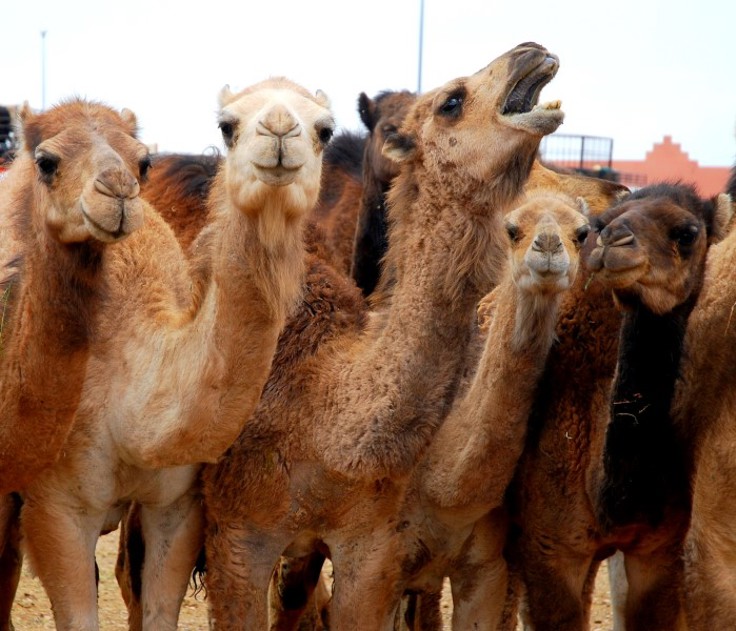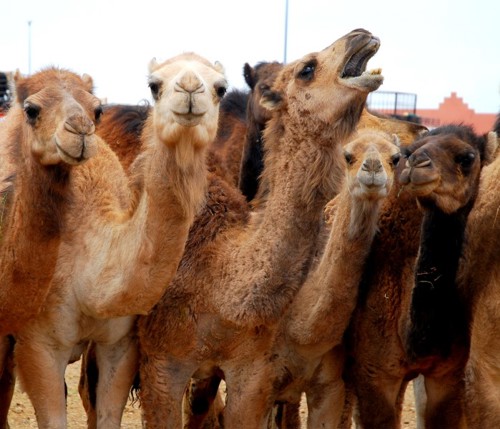Middle East Respiratory Syndrome (MERS-CoV)
Article
|Updated
Middle East Respiratory Syndrome Coronavirus (MERS-CoV) is a serious respiratory tract infection first identified in 2012 among humans in several Middle-Eastern countries. Dromedary camels are the source of infection. To date, MERS has not been detected in Norway.
History
Middle East Respiratory Syndrome is a serious respiratory tract infection caused by the MERS coronavirus (MERS-CoV). The virus was first detected in September 2012 in a sample from a deceased patient in Saudi Arabia. Since then, the virus has been detected in several countries in the Middle East. In some cases, infected individuals have travelled and caused transmission health institutions outside the Middle East.
Since 2012 there have been 2600 confirmed MERS cases registered, of which a third have died. Cases are reported from 27 countries.
The majority of disease cases have been detected in Saudi Arabia, mostly among people who have been in contact with dromedaries. In rare cases, the virus can be transmitted to household members, but sustained transmission between people has not been reported. Sometimes the virus can spread from infected people to people in healthcare facilities and cause outbreaks. Some cases of MERS have been detected in countries in Europe, Africa, Asia and the Americas after travel to the Middle East. A travel-related case led to a major hospital outbreak of MERS in South Korea in 2015 with 186 cases, of which 38 died.
About MERS-CoV and transmission route
The coronavirus family includes many different viruses that usually cause respiratory tract infections. Many coronaviruses cause colds, while others can cause more serious diseases such as pneumonia and, in some cases, cause death, such as MERS. The MERS coronavirus was first discovered in 2012. Bats are thought to be the natural reservoir for the virus. Dromedaries can be infected by the virus and are the source of infection for humans. The virus has not been detected in other domestic animals except alpacas.
Transmission route
Studies indicate that MERS is a zoonosis which is a disease transmitted from animals to humans. Humans probably get infected by the virus through direct and indirect contact with sick dromedary camels.
In some conditions (health institutions and households) the virus can sometimes be transmitted from person to person. It is believed that coughing / droplets are the main route of infection between people, but other transmission routes cannot be excluded. Sustained virus transmission among humans has not been demonstrated. Contact tracing around MERS cases that have travelled by plane to countries outside the Middle East, has so far not resulted in detection of virus transmission to other passengers.
Incubation time
Studies show that the preliminary incubation period (time from infection to when symptoms occur) is somewhere between 2-14 days, the median incubation time is 5-6 days.
Disease and symptoms
MERS-CoV infection can cause anything from mild to severe disease course and can also lead to death. There have also been reports of several asymptomatic cases discovered during contact tracing. Most severe cases are caught by the surveillance systems. So-called secondary cases (people infected by other sick people) more often develop mild symptoms compared to the primary cases.
Symptoms of MERS can include fever, cough and breathing difficulties. Nausea, vomiting and diarrhoea may also occur. Among the seriously ill, complications such as acute pulmonary failure syndrome (ARDS), pericarditis (inflammation of the pericardium), organ failure and disseminated intravascular coagulation (DIC) can occur.
There is a predominance of men among those diagnosed with the MERS virus. The disease has been reported in all age groups, with most cases among middle-aged people. A great many of those who are diagnosed have underlying diseases.
Diagnosis and treatment
The Norwegian Institute of Public Health's reference laboratory for coronaviruses with outbreak potential has diagnostics for detecting the MERS coronavirus from respiratory samples.
Prevention of MERS
There is no vaccine or preventive medicine against the disease, but several vaccines are under development. Travellers are also recommended to avoid contact with dromedary camels and avoid ingesting milk, meat, blood or urine from these animals. Good hand-hygiene is an important preventive measure which applies for all infections, including MERS. Avoid close contact with people with acute respiratory disease when travelling in the Middle East.
When should medical help be sought?
Prompt medical assistance is important if you are unwell. If you have been in the Middle East or been in contact with MERS patients during the past 14 days and have a fever, cough, breathing problems or chest pains, consult your physician. It is recommended to call your doctor by telephone before attending the clinic. Patients hospitalised with symptoms of severe respiratory disease and who have been in the Middle East during the past 14 days should be tested for MERS-CoV and other possible infections. Physicians should be aware that patients on immunosuppressive therapy may display different symptoms than respiratory symptoms following MERS infection.
Treatment
There is no specific treatment for MERS, but several drugs are being tested. Supportive treatment is used. In case of breathing problems, ventilation may be necessary.
Travel advice
The travel advice for MERS applies particularly when travelling to Middle Eastern countries.
Most cases of MERS have originated in Saudi Arabia. A few have been diagnosed in Europe, either because they were transferred to a European country for intensive care, or because they became ill after staying in the Arabian Peninsula. In some countries, it has also been transmitted to close contacts, including other patients and staff in hospitals.

